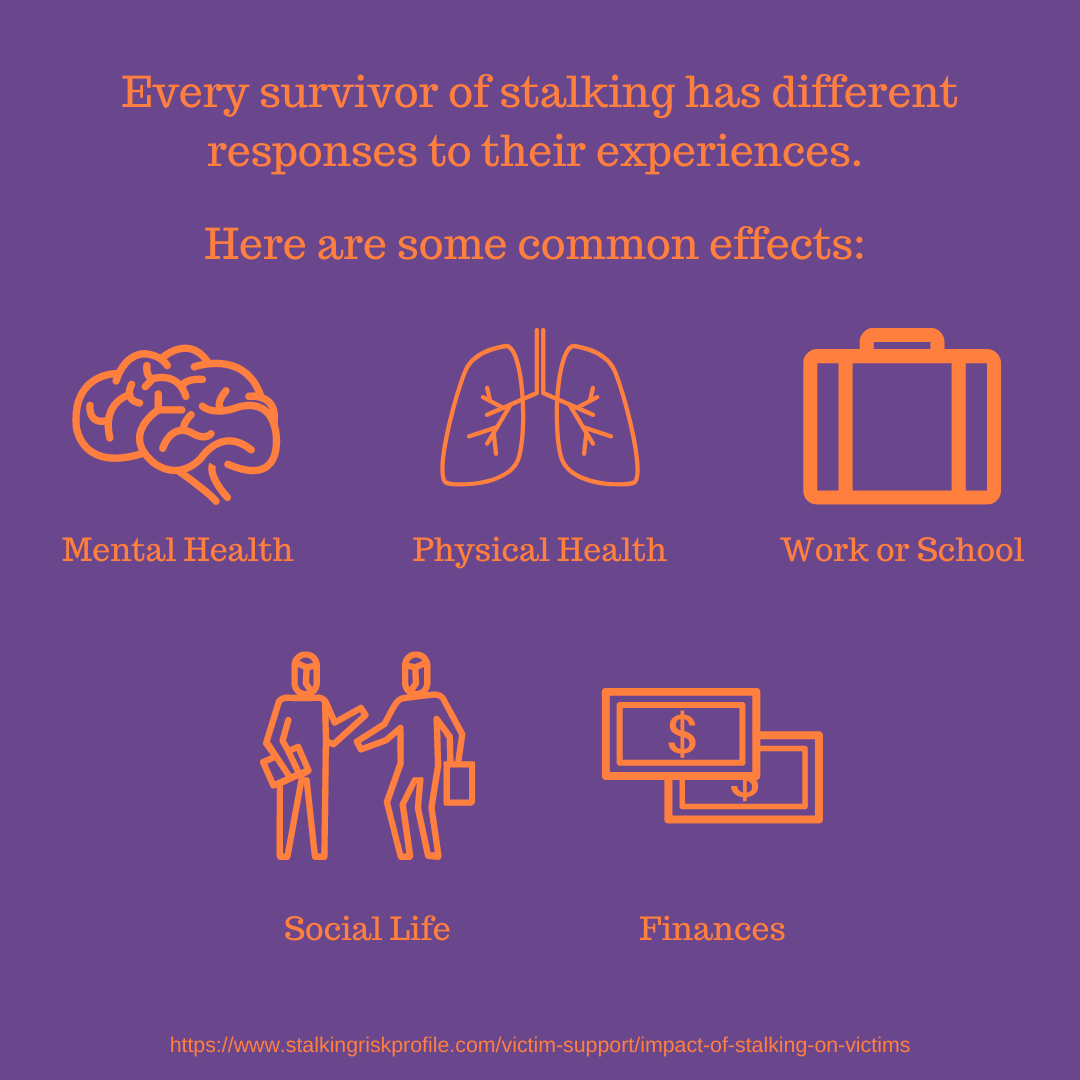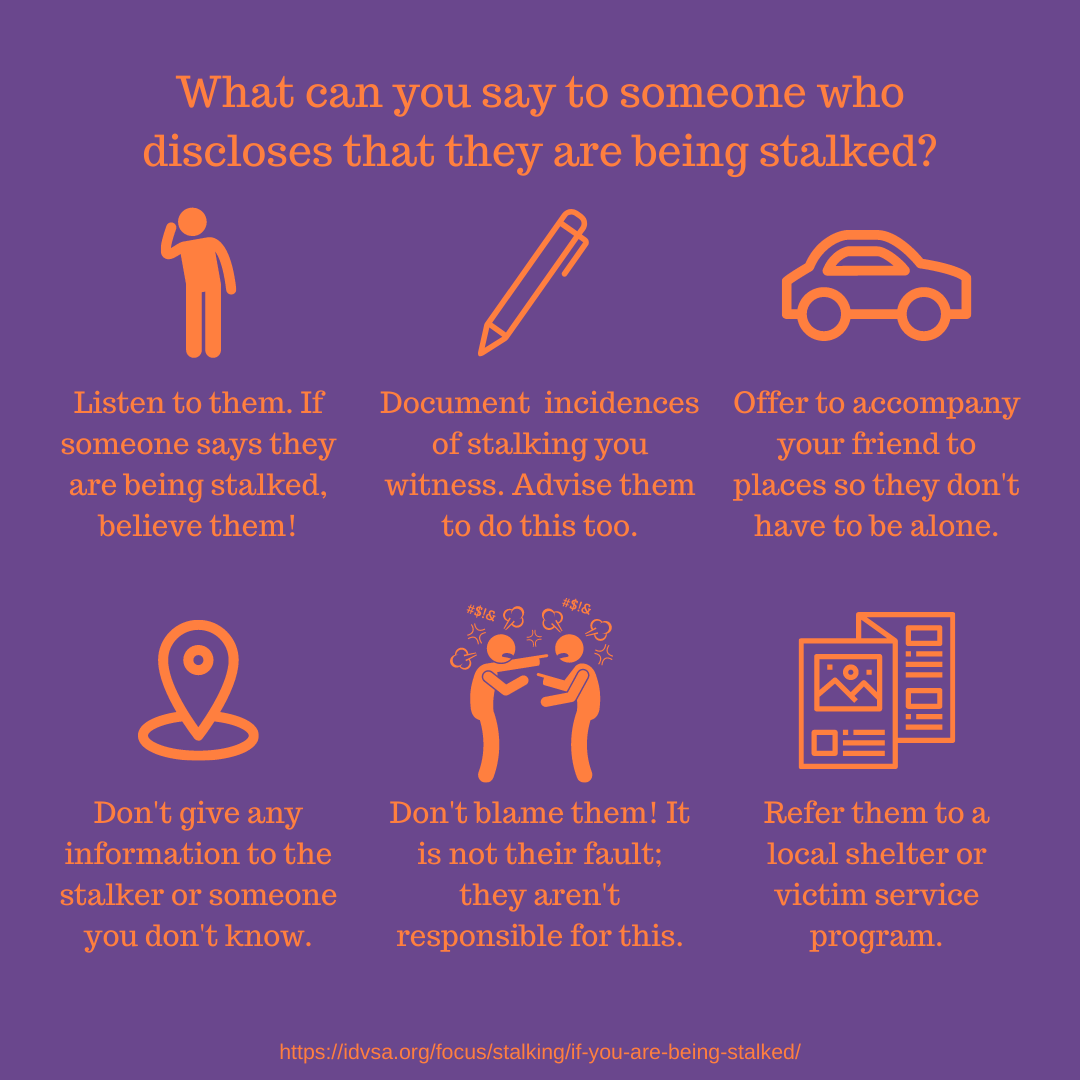By Madeline Malnight
January is National Stalking Awareness Month. Here are some things you might not know about stalking and how it impacts those victimized by it.
What is the definition of stalking?
Stalking occurs when someone experiences repeated patterns of behavior that cause them to feel a reasonable fear for their safety or the safety of others around them.
States each have their own legal definition of stalking which may differ from others in what constitutes a pattern, types of behavior, and/or levels of fear. It is important to be familiar with your state’s specific laws on stalking. Websites like statelaws.findlaw.com or womenslaw.org can make those legal codes easy to find and they break them down into language that is understandable.
Some examples of stalking behavior are:
Receiving repeated unwanted phone calls, emails, texts, or letters.
Repeatedly showing up uninvited at your house, school, or work.
Sending you unwanted gifts, flowers, or other items.
Following you or spying on you, waiting for you at places.
Damage to your property.
Threats made against you and/or your family members or friends.
Stalking takes an immense toll on the survivor. Effects include:
One study found that “three quarters of the victims also displayed a symptom level that indicated the presence of a diagnosable psychiatric disorder. A significant number of stalking victims experience impacts in their interpersonal relationships and their ability to work in a traditional manner.
Who is at risk of being stalked?
The National Intimate Partner and Sexual Violence Survey (NIPSV) found that 1 in 6 women and 1 in 17 men were stalked at least once, “during which [they] felt very fearful or believed that [they] or someone close to [them] would be harmed or killed”. The same survey also found that most victims of stalking were stalked before they were 25 years of age (54.1% of women and 41% of men).
The Stalking Prevention, Awareness, and Resource Center (SPARC) reports that victims of stalking are more likely to be stalked by someone they know, for instance, a current or former intimate partner or a family member.
What should you say to someone who discloses their experience to you?
Many victims of stalking don’t disclose their experience. Often they fear they won’t be believed, or that they’ll be told they are overreacting. Here are some suggestions on how to respond to a stalking disclosure:
What resources are available for victims of stalking?
Stalking is a crime in all fifty states. For cases that occur across multiple states, there are laws at the federal level designed for those cases. Victims of stalking are encouraged to keep a stalking log, documenting incidents for any future legal proceedings. SPARC has a free stalking log to keep track of incidents and they also encourage victims to save evidence of texts, emails, or other forms of cyberstalking.
Obtaining a restraining order, also called a protection order, stay away order, or a host of other names depending on your location, is recommended. If you have a protection order, it's important that you carry it with you at all times and that the authorities are contacted IMMEDIATELY if the order is violated. If too much time has passed between the incident and it being reported, or the order is not consistently enforced it can prevent authorities from acting to ensure your safety.
The following organizations have resources, safety tips, and hotlines for victims of stalking:
Above all, victims of stalking are encouraged to understand that stalking is a serious threat, take proper safety precautions, and to not hesitate to contact the authorities if you feel threatened or unsafe.


